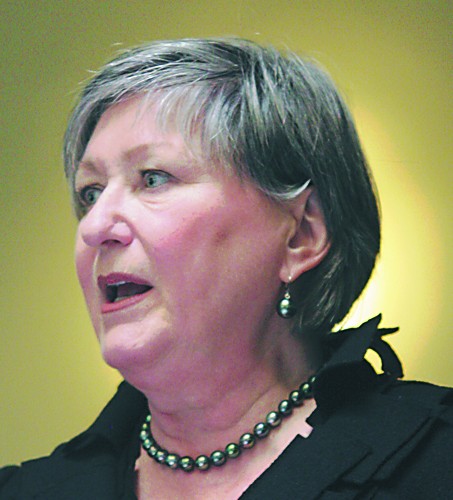The Arizona Board of Regents tiptoed around the law to keep UA presidential candidates a secret.
The board announced just one candidate — Ann Weaver Hart, the current president of Temple University in Philadelphia — in early February. In previous presidential searches, the board complied with Arizona Public Records and Open Meeting laws by having a majority of the presidential search committee meet with candidates. This required the board to release the candidates’ names if requested.
This year, less than a majority of the search committee members interviewed each potential candidate, making them exempt from open meetings laws.
The board decided against publicly announcing candidate names during the UA presidential search this year because it allowed candidates to have some confidentiality while talking to board members about the job of president, said Dennis DeConcini, a member of the board.
Although he could not speak about the history of the selection process, DeConcini, who sat on the search committee when former president Robert Shelton was selected, said making the names public when Shelton was being considered caused some candidates to lose their jobs as sitting presidents. Board members used to publicly announce candidates on their own will if they thought the individual was a good fit for the position, he said.
The decision to keep candidate names confidential was implemented in late June, when the board began planning the search process.
Road to a new president
Shelton, the 19th president of the UA, stepped down from his position on June 13, 2011, to become the NCAA Fiesta Bowl’s executive director.
Board members estimated the search for his replacement would last about one year. They met later that week to discuss the formation of a search committee and appoint an interim president for the university.
On June 18, 2011, the board announced that Eugene Sander, former vice provost and dean of the College of Agriculture and Life Sciences, would be the interim president. The board then selected 23 people to serve on the UA presidential search committee on Aug. 5, 2011.
“Each member of this committee has a deep connection to the University of Arizona and represents a key constituent group that will provide valuable input on the search process,” DeConcini said.
Katie Paquet, executive director for public affairs and external relations for the board, said after months of public forums and interviews, the committee narrowed the list of prospects down to four people: Hart; Phil Dubois, chancellor for the University of North Carolina; Michael Martin, chancellor for Louisiana State University and Joaquin Ruiz, the dean of the UA’s College of Science.
On Feb. 7, Hart was named as the finalist, and 10 days later the board approved her contract. She will be the UA’s first female president starting on July 1.
Hart will begin her three-year term, which ends on June 30, 2015, with an annual salary of $475,000. Her contract includes a housing and car allowance, moving expense reimbursement and a transition expense payment of $100,000 from non-university funds.
Sarah Harper, director of public affairs for the board, said the search committee was originally projected to make a decision in March or April, but ended up making one in mid-February. The committee looked at about 100 candidates and “whittled” the number down to Hart, she said.
“It was a satisfying process and it was very well done,” said Edith Auslander, a member of the search committee and retired UA vice president.
Sander said he was pleased that the search committee chose someone who had a lot of experience working in higher education, as well as with a medical school.
“The regents obtained a great academic leader for the UA,” he said.









